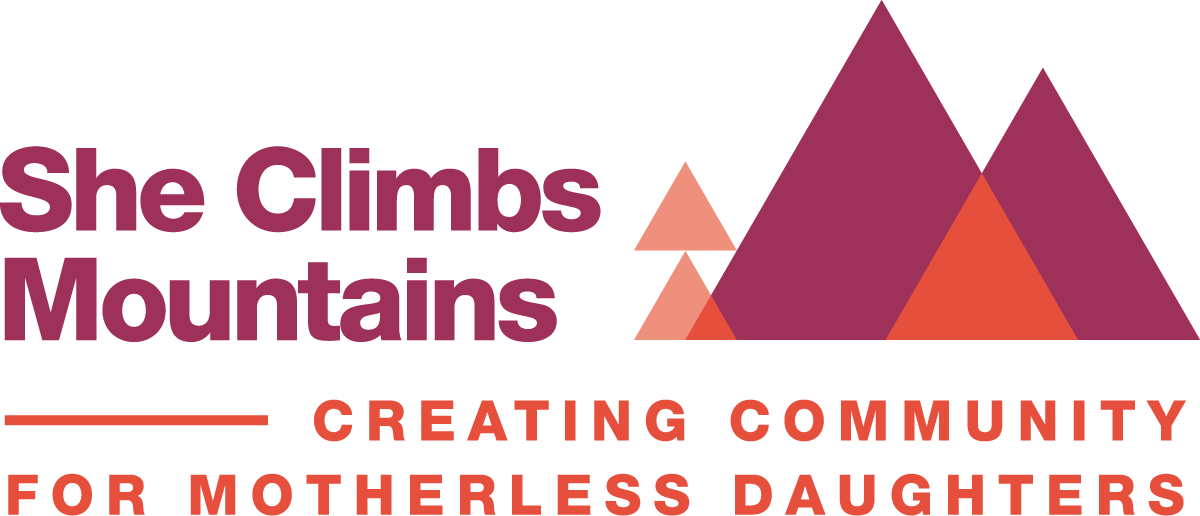contributed by Courtney Carter
My mother and I had the same thumbs. Identical. We could put our hands next to each other, fingers bent, so our thumbs lined up and touched, and they looked like they belonged to the same person, instead of one belonging to the mother and the other to the daughter.
My mother and I had the same smile. Wide, generous, open.
My mother had two daughters, and I have two daughters. We birthed all four babies before 37 weeks. For both of us, on our first labors, our waters broke spontaneously, hours after having a baby shower.
My mother died when I was 21 weeks pregnant with my first daughter. She died from alcoholism. It was, perhaps, a long time coming, but we did not expect it. I was in the middle of moving to a new apartment. It was September first.
We had found out we were having a girl ten days before my mom died. We had a gender-reveal party, but when I called to check on her, I could tell she had been drinking, and so I disinvited her. Even still, later that evening, I called to tell her she would be having a granddaughter. “A girl!” she exclaimed. She had wanted girls herself. And she had wanted me to have a girl. Really, just a healthy baby, she said, but I knew we were both excited about a daughter.
The next morning, I called my mom on the phone on the way to brunch with friends. We talked about our mutual excitement. I told her I would come by later that weekend with some of the cake with the pink icing on the inside. But I didn’t make it over to her house that weekend. That phone call, cut short by being in the car, was the last time we talked. She left me a voicemail later that morning. Into the phone, she cooed, “My girls…”
Three and a half months later, on a Sunday night, my water broke. My due date wasn’t for another three and a half weeks. But because this was the same way my own birth had started, and the same way my sister’s birth had started, I wasn’t scared by those facts. My mom’s retelling of her birth stories over the years normalized these things for me. I had wanted a drug-free birth like my mom had done for both of her deliveries. But after 31 hours stuck at 1.5 centimeters, the midwives discovered my baby had turned breech sometime during labor. I had a cesarean. My mom loomed during those 31 hours. But I was so anxious and unsure about being in labor, about how to face her during that time. I just avoided it. The loss was still so new. My grief was so new, it didn’t even feel like grief yet. And then, my labor ended up being entirely out of my hands, and I felt disappointed. Like I had let her down. I had wanted to honor her with my labor, and I ended up totally helpless.
But when I finally got to see my daughter, I was immediately in love. She cried, and I cried. She had a head full of dark hair. She looked like me. I imagined my mom felt the same way when I was born. She had pushed for two hours with me. I had a cone-head. I was jaundiced. “I had never seen anything more beautiful,” she would tell me. “You were perfect.”
Never one to shy from a challenge, when I was pregnant with my second daughter almost three years later, I was planning a drug-free VBAC. My labor was again moving slowly, contractions coming and then disappearing before any rhythm developed. I was discouraged. Our doula, who had been at our first daughter’s birth, came over to give me some encouragement. We tried some things, and she jump-started my labor. Things started moving along. But I started to feel this anxiety again. There was something I needed to say. I feared that, if I didn’t say it, I would be emotionally blocked up and unable to birth my daughter. But I was scared to even let the words out. Again, my mom loomed, but it was so hard to acknowledge it out loud. I reached deep down inside myself to find some courage. “I miss my mom,” I said. And then I cried. My daughter was born less than two hours later. The midwife passed her to me, and I held her to my chest, and I felt pride, and relief, and love. She, too, was perfect to me.
My daughters’ middle names are my mom’s first and middle names. I see my mom in each of them, and in me. My girls, my girls, my girls.
